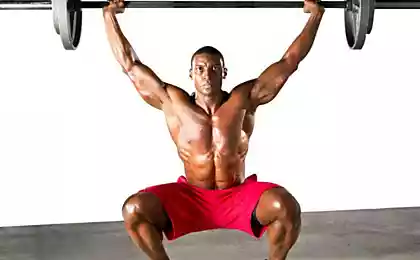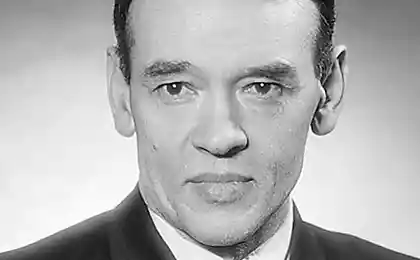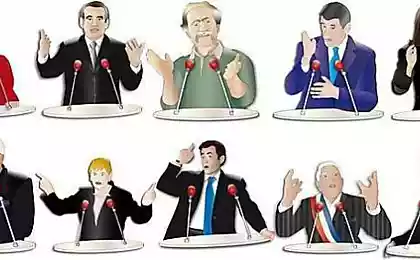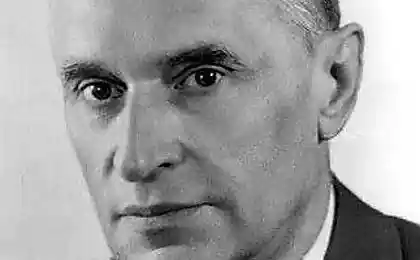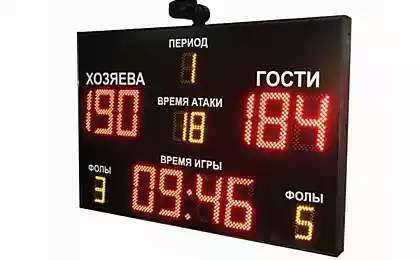467
Fundamental theses of the training that it is time to reconsider
Lift very heavy weight for muscle growth, eat more protein and run on an empty stomach in order to effectively burn fat — these and other classic training thesis is firmly rooted in the minds of athletes. Something of these statements is true, and something it's time to change the look.
In sports medicine, biomechanics and other allied Sciences regularly there are new discoveries that are changing the classic view on the various aspects of the training. As a rule, they do not refute previous data obtained on certain issues, but only complement them.

Thesis 1. The more we raise the weight, the faster grow of musclesSkeletal muscles quite quickly adapts to external stimuli, and the best catalyst for growth is change of load. The classical technique of increasing muscle size has long been considered (and is considered to this day) working with large weights — about 60% of the maximum weight with which the athlete can do one repetition.
Another common option is to work with weights weighing from 80 to 95% of the maximum weight in one repetition.
Recent studies have shown that the use of weights for about 30% of the maximum in a single iteration can be as effective at stimulating muscle growth as the previous methods, provided that the exercise will be done to complete failure, i.e. until it is impossible to perform even one more repetition.
Scientists say that after an extensive training with small weights the body cannot synthesize more protein than after a few repetitions with large.
There are a few rules that will effectively work with small weights:
Thesis 2. There is a "anabolic window" that you want to close immediately after a workout that right after a workout you need a protein or protein-carbohydrate cocktail, it was spoken so much that it has become an unwritten law for visitors of the gyms. However, recent studies argue that the "anabolic window" is more like "anabolic gate".
Most coaches say that the "window" to close no later than an hour after a workout. The rate of muscle protein synthesis does not change, if to eat three hours after the exercise. There is also a study showing that the adoption of the protein mix in the morning and evening on training days gives the same effect that the use of cocktails directly after sports.
The conclusion isto Drink a protein shake after a workout — delicious ritual, but we should not overestimate the importance of taking post-workout protein blend. The total amount of protein eaten per day is much more important and to the best of his admission there is no "anabolic window" or "green areas".
Thesis 3. The more protein enters the body with food, the bettermuscle Hypertrophy occurs when the body receives more protein than you consume. While it is not necessary to load the stomach with plenty of protein: an athlete weighing 80 pounds will get the same benefit from 30 grams of beef protein, and how much is 90 grams. Between 20 and 40 grams of egg protein, eaten at one time, also there is a big difference, if we talk about the increase in muscle mass.
Conclusiondo Not try to eat as much protein as you can. The body will absorb about 30-35 grams of protein at a time, utilityroom else without any benefit for the body. The amount of protein that your body can assimilate at one time (assuming that you are all right with the stomach), — 0.2–0.3 grams per kilogram of body weight in one meal.
Thesis 4. Cardio on an empty stomach allows you to burn fat more quicklyIn many training programs cardio recommended to do on an empty stomach, immediately after waking up. Explain it is usually that upon waking the body is in a state of starvation, glycogen levels and insulin is lowered and the body must switch to using fat as fuel.
Recent studies have shown that the efficacy of cardio on an empty stomach is not higher than that compared to morning workout after Breakfast.
ConclusionDo morning cardio as you like. If you are accustomed to do on an empty stomach run before eating. If on a run you always feel dizziness, malaise or weakness — eat before going out on the street or treadmill. published
P. S. And remember, only by changing their consumption — together we change the world! ©
Join us in Facebook , Vkontakte, Odnoklassniki
Source: lifehacker.ru/2015/08/23/tezisy-treninga/?rlp
In sports medicine, biomechanics and other allied Sciences regularly there are new discoveries that are changing the classic view on the various aspects of the training. As a rule, they do not refute previous data obtained on certain issues, but only complement them.

Thesis 1. The more we raise the weight, the faster grow of musclesSkeletal muscles quite quickly adapts to external stimuli, and the best catalyst for growth is change of load. The classical technique of increasing muscle size has long been considered (and is considered to this day) working with large weights — about 60% of the maximum weight with which the athlete can do one repetition.
Another common option is to work with weights weighing from 80 to 95% of the maximum weight in one repetition.
Recent studies have shown that the use of weights for about 30% of the maximum in a single iteration can be as effective at stimulating muscle growth as the previous methods, provided that the exercise will be done to complete failure, i.e. until it is impossible to perform even one more repetition.
Scientists say that after an extensive training with small weights the body cannot synthesize more protein than after a few repetitions with large.
There are a few rules that will effectively work with small weights:
- To count the total lifted weight in all exercises for one workout — it needs to be no less than classic power.
- Concentrate on muscle contractions.
- Use of intensive training methods like drop-sets, partial range of motion and forced reps.
- To eat well, to use the nitrogen for better saturation of the muscles with blood and other sports supplements.
Thesis 2. There is a "anabolic window" that you want to close immediately after a workout that right after a workout you need a protein or protein-carbohydrate cocktail, it was spoken so much that it has become an unwritten law for visitors of the gyms. However, recent studies argue that the "anabolic window" is more like "anabolic gate".
Most coaches say that the "window" to close no later than an hour after a workout. The rate of muscle protein synthesis does not change, if to eat three hours after the exercise. There is also a study showing that the adoption of the protein mix in the morning and evening on training days gives the same effect that the use of cocktails directly after sports.
The conclusion isto Drink a protein shake after a workout — delicious ritual, but we should not overestimate the importance of taking post-workout protein blend. The total amount of protein eaten per day is much more important and to the best of his admission there is no "anabolic window" or "green areas".
Thesis 3. The more protein enters the body with food, the bettermuscle Hypertrophy occurs when the body receives more protein than you consume. While it is not necessary to load the stomach with plenty of protein: an athlete weighing 80 pounds will get the same benefit from 30 grams of beef protein, and how much is 90 grams. Between 20 and 40 grams of egg protein, eaten at one time, also there is a big difference, if we talk about the increase in muscle mass.
Conclusiondo Not try to eat as much protein as you can. The body will absorb about 30-35 grams of protein at a time, utilityroom else without any benefit for the body. The amount of protein that your body can assimilate at one time (assuming that you are all right with the stomach), — 0.2–0.3 grams per kilogram of body weight in one meal.
Thesis 4. Cardio on an empty stomach allows you to burn fat more quicklyIn many training programs cardio recommended to do on an empty stomach, immediately after waking up. Explain it is usually that upon waking the body is in a state of starvation, glycogen levels and insulin is lowered and the body must switch to using fat as fuel.
Recent studies have shown that the efficacy of cardio on an empty stomach is not higher than that compared to morning workout after Breakfast.
ConclusionDo morning cardio as you like. If you are accustomed to do on an empty stomach run before eating. If on a run you always feel dizziness, malaise or weakness — eat before going out on the street or treadmill. published
P. S. And remember, only by changing their consumption — together we change the world! ©
Join us in Facebook , Vkontakte, Odnoklassniki
Source: lifehacker.ru/2015/08/23/tezisy-treninga/?rlp




